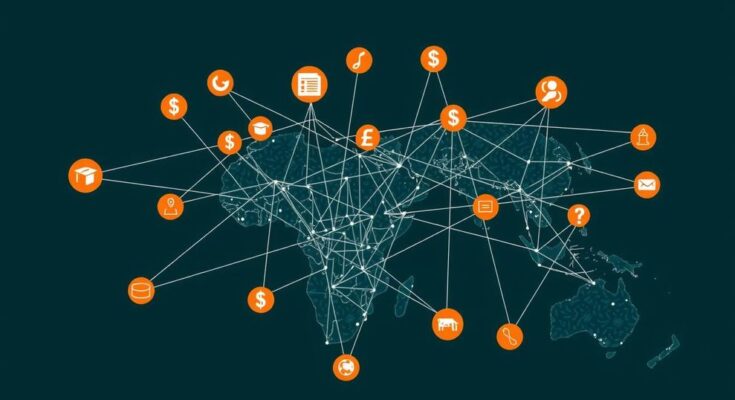This article examines the critical relationship between public debt and education in Zimbabwe, Eritrea, South Sudan, and South Africa. It highlights how financial constraints and governance challenges hinder educational access and quality, emphasizing the need for effective debt management strategies to prioritize education amidst fiscal pressures. The piece reflects on international frameworks promoting the right to education and advocates for comprehensive reforms and transparency to achieve equitable educational outcomes.
The interrelationship between public debt and the right to education is an intricate and pressing issue that has significant implications for several African nations, particularly Zimbabwe, Eritrea, South Sudan, and South Africa. This analysis underscores how various fiscal pressures, alongside governance challenges, shape the accessibility and quality of education in these countries. In Zimbabwe, historical hyperinflation and financial mismanagement have considerably restricted state investment in education, leading to underfunded schools, inadequate infrastructure, and low enrollment rates.
In Eritrea, a strong emphasis on self-reliance has constrained educational resources, with a disproportionate focus on military expenditure hampering the provision of educational services. Furthermore, compulsory national service disrupts students’ educational pathways, creating barriers to accessing quality education.
South Africa presents a more complex scenario, as economic advancement does not neatly translate into equitable educational access. The legacy of apartheid continues to create disparities across regions and socio-economic groups, complicating resource allocation amidst ongoing financial pressures. In this context, issues such as overcrowded classrooms and resource deficits remain prevalent.
Conversely, South Sudan grapples with a dire situation characterized by conflict and corruption, leading to substantial debt burdens that detract from educational funding. Despite significant oil revenues, systemic resource mismanagement results in underdeveloped educational infrastructure, exacerbating the country’s educational crises.
The overarching lesson emerging from these experiences is that addressing educational deficits mandates a holistic approach to debt management and governance. Effective debt management—encompassing comprehensive strategies, restructuring, or even cancellation for severely indebted nations—can strategically free up resources necessary for enhancing educational infrastructure and improving learning outcomes.
Additionally, contextualizing these lessons at a global scale is vital, particularly in alignment with international frameworks such as the International Covenant on Economic, Social and Cultural Rights (ICESCR) and the Sustainable Development Goals (SDGs). For instance, Article 13 of the ICESCR emphasizes the obligation of states to ensure education’s availability, accessibility, acceptability, and adaptability. Countries facing substantial debt burdens are encouraged to engage in negotiations with creditors to safeguard educational budgets, thereby upholding the right to education even amidst fiscal challenges.
Moreover, the principles of the SDGs advocate for inclusive and equitable education, necessitating a balanced fiscal policy that ensures public services, especially education, remain prioritized over debt repayments. Anti-corruption measures, stakeholder participation, and community engagement in budgeting are additional strategies that can fortify accountability and prioritize educational needs in debt management discussions.
The relationship between debt management and educational quality has garnered increasing attention, particularly from international development perspectives and human rights law. As nations encounter fiscal constraints, the right to quality education can be jeopardized without proactive governance and strategic resource allocation. Understanding how debt impacts public services, especially education, is crucial in formulating policies that support sustainable development and uphold human rights obligations, as illustrated by the respective experiences of Zimbabwe, Eritrea, South Sudan, and South Africa. These countries present diverse challenges shaped by unique historical contexts and governance issues that highlight the multifaceted impact of debt on the provision of education. Analyzing these issues within an international legal framework reveals insights applicable to broader global contexts facing similar challenges in achieving educational equity and quality.
In summation, the complex interplay of debt and education in Zimbabwe, Eritrea, South Sudan, and South Africa calls for a robust approach to debt management that considers its profound implications for public services, particularly education. The insights gleaned from this analysis underscore the necessity for comprehensive fiscal reforms, decisive anti-corruption measures, and strategic educational investments. Ensuring that the right to education remains protected amidst financial constraints will demand collaboration among policymakers, international partners, and civil society, fostering a landscape where education contributes meaningfully to sustainable development and social equity.
Original Source: www.amnesty.org




